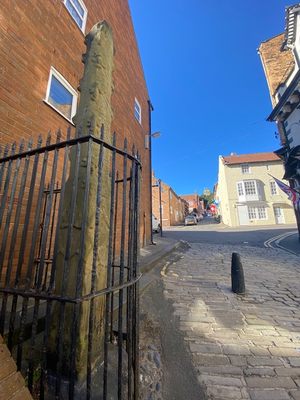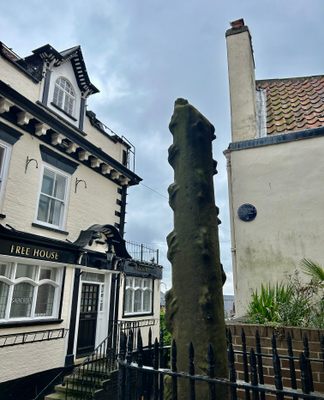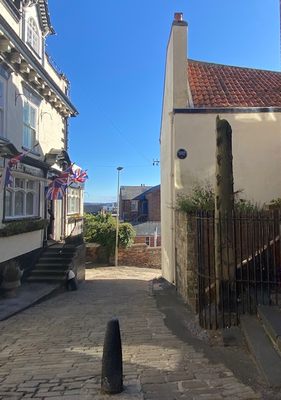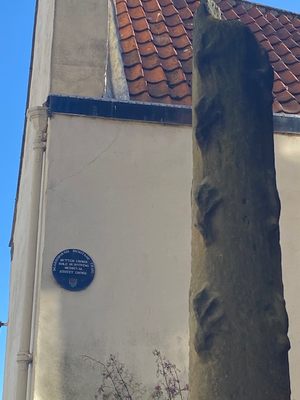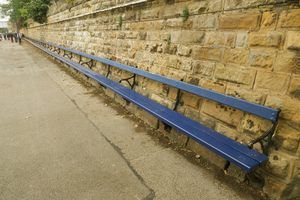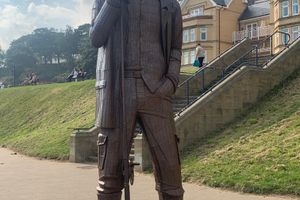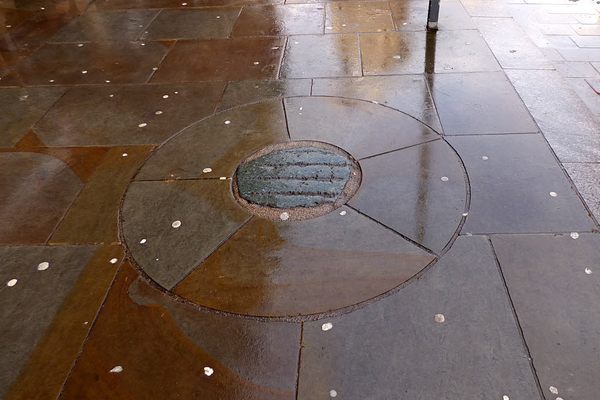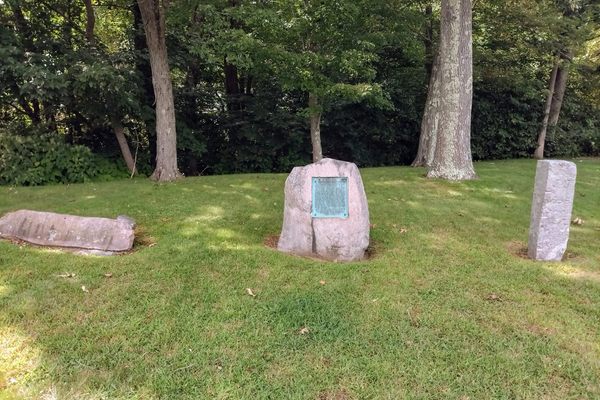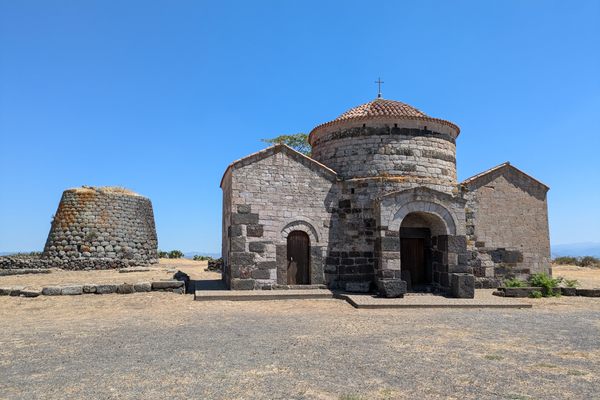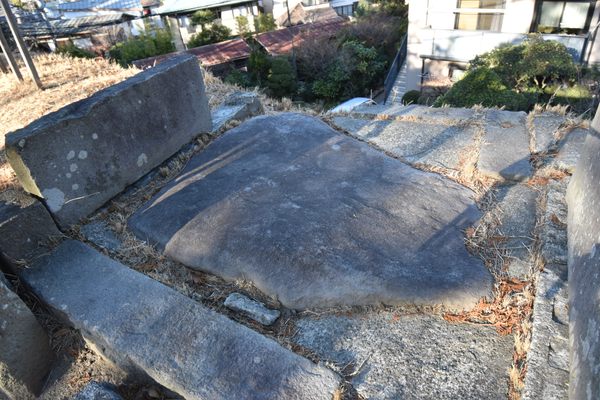About
Tucked away at the edge of a market square, at the top of a winding cobbled street is what remains of a medieval butter cross.
A butter cross is a type of market cross associated with English market towns, they date back to the Middle Ages. Named because they were located on squares used for markets where local people would gather to buy local produce such as butter, milk, and eggs. The stepped base of the cross would be used to lay out a display of the fresh produce for sale.
The Old Borough market was located on what is now known as Princess Square, part of Scarborough's old town, built on the cliff tops overlooking the North Sea.
All that is left of the former cross is the base and main stone pillar, which have been badly weathered and eroded. There is a carved pattern of crocketed leaves on the sides of the column, a decorative style commonly found in gothic architecture and medieval churches. It is therefore thought that the stone pillar was originally part of a church, an ornamental pinnacle, which was repurposed to form the cross. Several friary churches in the area were dissolved in the mid-16th century under the rule of King Henry VIII. It is possible that the pinnacle was then relocated to replace the original medieval cross on that site.
The medieval street markets of Scarborough were lost when a purpose-built market hall was opened in St Helen’s Square in 1853. Prior to this, there were several squares that were used as street markets, with stone crosses used to mark the sites. Scarborough is thought to at one time have had a least five butter crosses, however, this site is the location of the only surviving cross.
Related Tags
Know Before You Go
Access from town is via the steep cobbled section of West Sandgate. It can also be viewed at the other end from the more level Princess Street.
Published
September 30, 2022
